Use of Present Perfect
- puts emphasis on the result Example: She has written five letters.
- action that is still going on Example: School has not started yet.
- action that stopped recently Example: She has cooked dinner.
- finished action that has an influence on the present Example: I have lost my key.
- action that has taken place once, never or several times before the moment of speaking Example: I have never been to Australia.
Signal Words of Present Perfect
Exercises on Present Perfect
- present perfect exercises - Agendaweb
- Exceptions in Spelling when adding ‘ed’
- have or has
- Positive Sentences in Present Perfect Simple
- Negative Sentences in Present Perfect Simple
- Sentences with ‘never’ in Present Perfect Simple
- Questions in Present Perfect Simple
Activity 1: Listen to the explanation about the present perfect and write down the three different uses with an example.
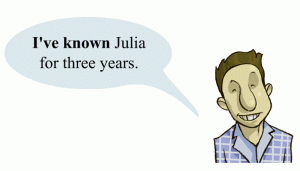
Activity 2: Listen to this interactive explanation about the form of the present perfect and complete the tasks on-line.
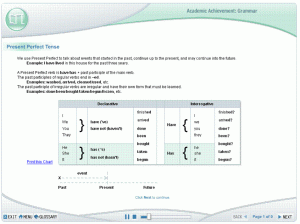
Activity 3: Complete this activity about the difference between the simple past and the present perfect tenses.
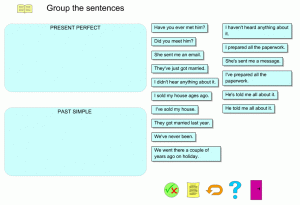
Activity 4: Now match these sentences.
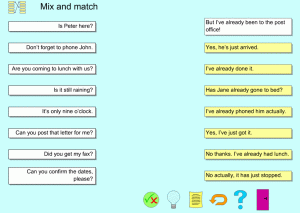
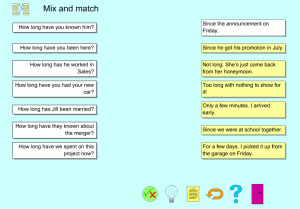
Activity 5: Now complete with the correct participle BEEN (you have already come back) or GONE (you have gone but have not come back yet).
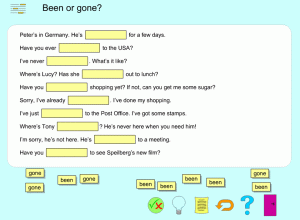
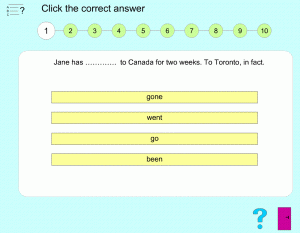
Activity 6: Complete with HAS or HAVE.
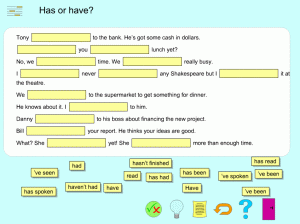
Activity 7: Put the words in order.
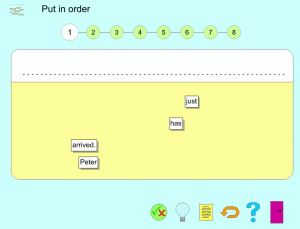

Activiy 8: Now complete with the adverbs SINCE (a point in time) or FOR (a period of time).
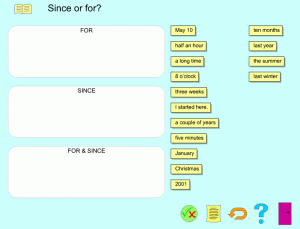
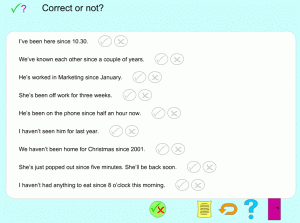
Activity 9: Now complete with the correct adverbial: FOR, SINCE, ALREADY, YET, EVER, STILL, AGO.
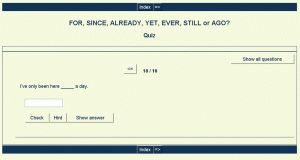
Activity 10: Finally practise the past simple and past participles of irregular verbs with this interesting on-line application.

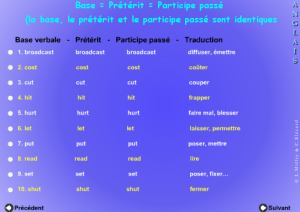

Activity 2: Listen to this interactive explanation about the form of the present perfect and complete the tasks on-line.

Activity 3: Complete this activity about the difference between the simple past and the present perfect tenses.

Activity 4: Now match these sentences.


Activity 5: Now complete with the correct participle BEEN (you have already come back) or GONE (you have gone but have not come back yet).


Activity 6: Complete with HAS or HAVE.

Activity 7: Put the words in order.


Activiy 8: Now complete with the adverbs SINCE (a point in time) or FOR (a period of time).


Activity 9: Now complete with the correct adverbial: FOR, SINCE, ALREADY, YET, EVER, STILL, AGO.

Activity 10: Finally practise the past simple and past participles of irregular verbs with this interesting on-line application.










